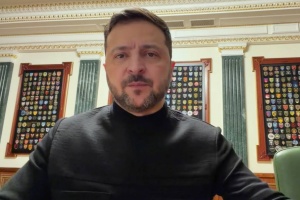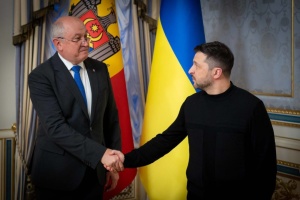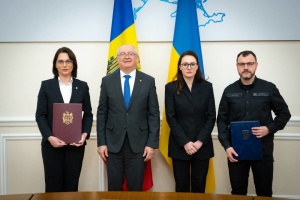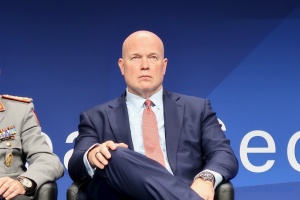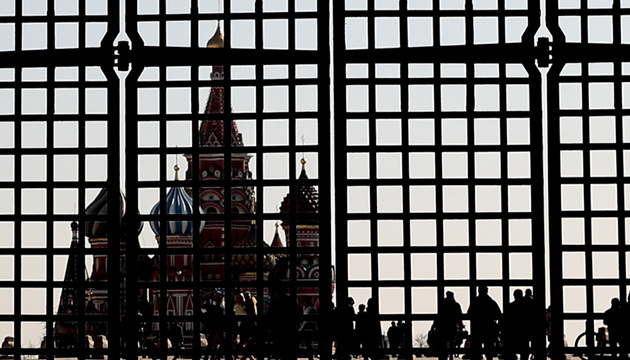
Nothing’s changed: Kremlin’s five techniques used in 1939 in Poland and in 2014 in Ukraine
The Russian Federation is a successor of the USSR – and not only in the legal plane. It also inherited the Soviet policy of aggression, disguised as declarations of peace and assistance to fraternal nations. In this sense, the autumn of 1939 has certain things in common with the spring of 2014.
On September 1, 1939, one of the most tragic pages in the history of mankind was opened as Hitler's troops invaded Poland, which marked the beginning of World War 2.
A week earlier, on August 23 of that year, Berlin had enlisted Moscow's critical support. Although history, as they say, has no conventional clause, Hitler could not have dared to invade without such backing. The Molotov-Ribbentrop Pact handed him carte blanche for aggression. Therefore, the events of September 1 cannot be considered separately from what happened a week prior to that, as well as 16 days following them.
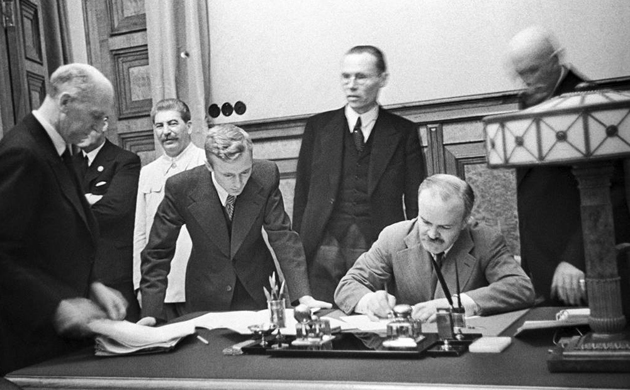
Soviet troops, who invaded Poland from the east on September 17, accelerated its fall. They also messed up the cards for Britain and France, who had a commitment to protect Poland from a potential German attack.
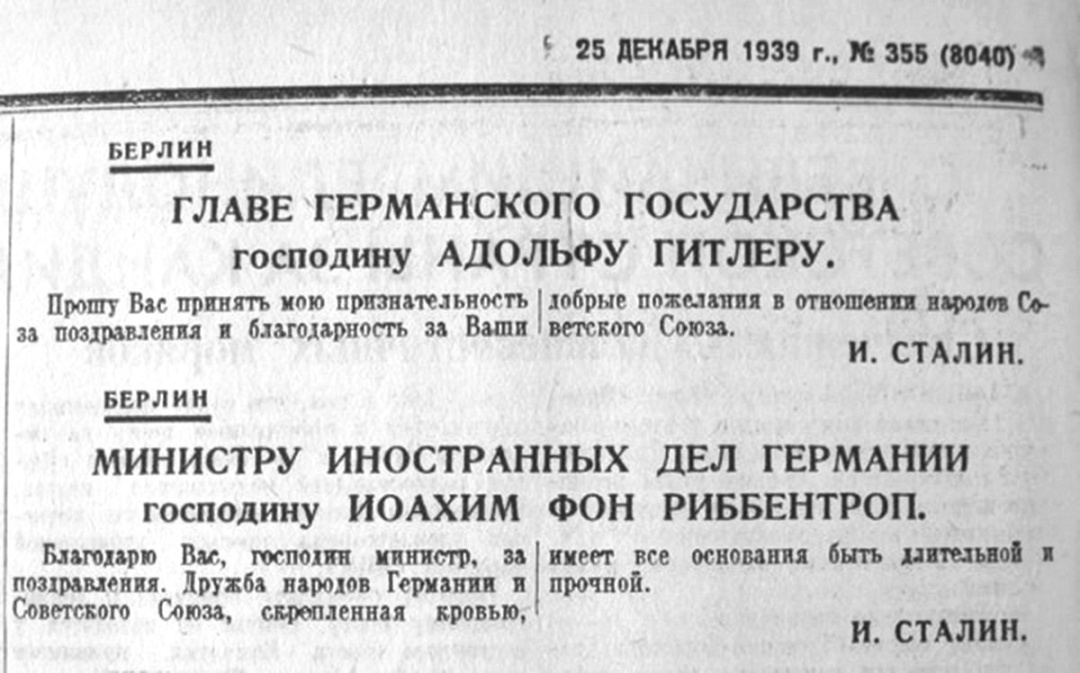
Responding to Hitler and Ribbentrop's greeting addresses on the occasion of his 60th birthday, on December 25, 1939, Stalin wrote: "Friendship of the peoples of Germany and the Soviet Union, bound by blood, has every reason to be lasting and strong."
The developments of spring 2014, of course, did not fully mirror all the intricacies of autumn 1939 because the world has undergone significant changes since then. But not Kremlin policy though…
We have identified the following five main features inherent in the style of the Kremlin's policy of aggression and its propaganda support:
1. Splitting a country
At the level of Russia’s State Duma on March 18, 2014, an idea was voiced to have Ukraine split between Russia, Poland, Hungary, and Romania. Albeit presented as an act of farce, it actually drew parallel lines with the Molotov-Ribbentrop Pact.
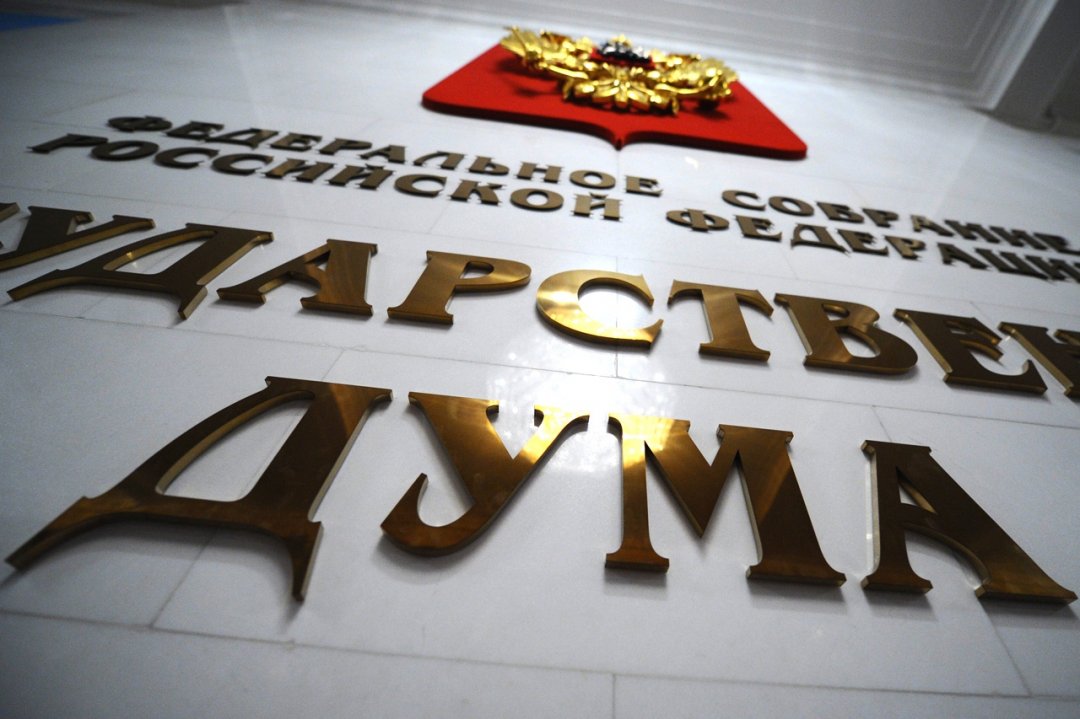
2. Undeclared war
Russia never declared war on Ukraine in 2014. In 1939, the USSR didn’t declare war on Poland, either.
3. "Non-existent state"
A note handed to the Polish ambassador in Moscow in 1939 stated that "the Polish state and its government had virtually ceased to exist" and thus "the treaties concluded between the USSR and Poland had ceased to have effect." In 2014, Putin declared the agreements signed between Russia and Ukraine invalid on the grounds that the state with which the treaties had been concluded had allegedly ceased to exist as a result of the "coup."
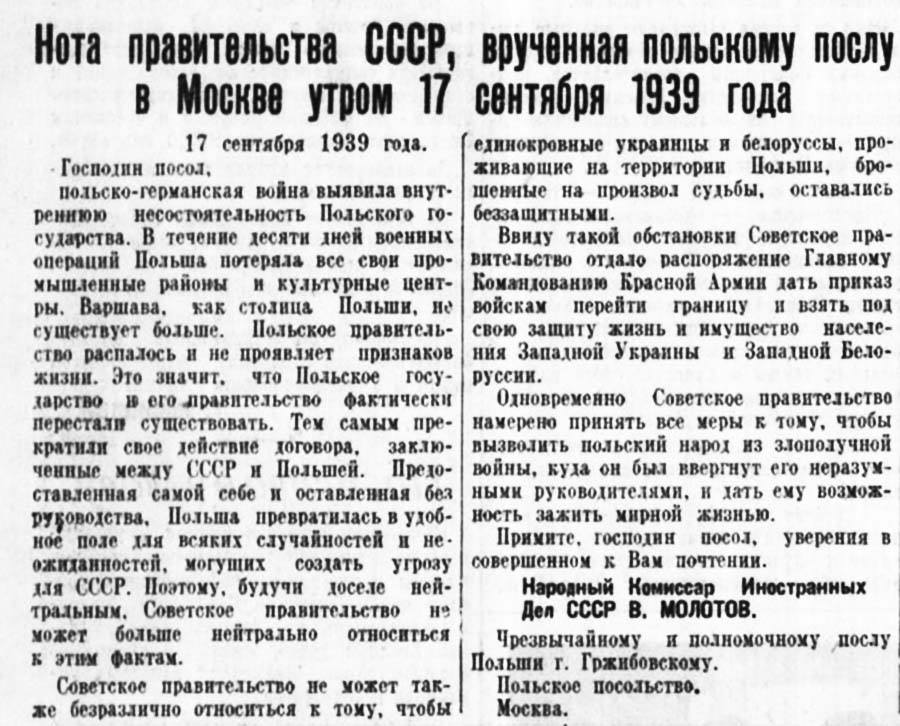
4. "Protection of one-blooded nations"
Just as Nazi Germany justified its aggression against Poland by the need to protect the Germans, Moscow declared the need to protect the “one-blooded nations.”
At the same time, as German Ambassador Schulenburg reported in a telegram on September 16, Moscow was forced to hint to Ukrainians and Belarusians at a threat coming the Germans, because "so far the Soviet Union did not care about its minorities in Poland and had to justify its intervention abroad."
Under a similar pretext, Moscow occupied Crimea in 2014, justifying its aggression by the need to protect the "Russian-speaking population."
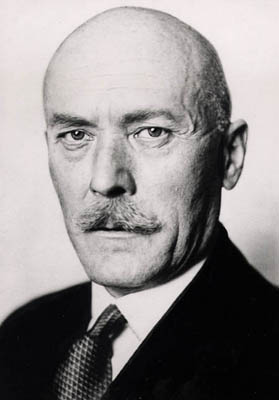
5. "Insidious West"
At the same time, the blame for the "unfortunate war" was laid on the "unwise leaders" of Poland, as well as on Britain and France. Stalin stated it was they who "attacked Germany" when they declared war on it after the Germans invaded Poland.
Molotov went even further, starting to defend Hitlerism: "The ideology of Hitlerism, like any other ideological system, can be recognized or denied – it’s a matter of political views. But everyone will understand that ideology cannot be destroyed by force, it cannot be terminated by war. Therefore, it’s not only senseless, but also criminal to wage such a war as the one for the ‘destruction of Hitlerism,’ which is covered by a false flag of the struggle for democracy."
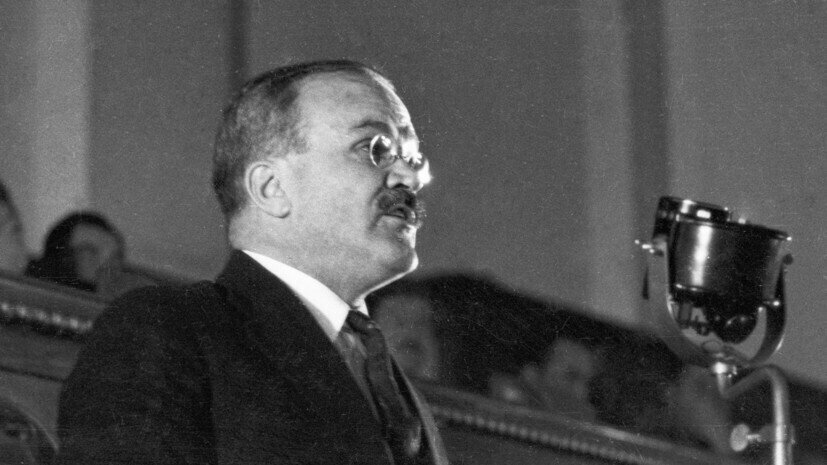
At the same time, the People's Commissar for Foreign Affairs of the USSR boasted of how quickly German and Soviet troops jointly dealt with Poland: “A blitz strike on Poland was enough – first by the German army, then by the Red army, to turn this brainchild of the Versilles Treaty into nothing… Neither English nor French guarantees have helped Poland. So far, no one knows, in fact, what those ‘guarantees’ were about anyway. (common laughter)."
This is reminiscent of numerous allegations Russian propaganda put forward, claiming that "the West has unleashed war in Ukraine," combined with ridicule of the Western powers’ alleged reluctance and inability to help Ukraine.
To be continued
History also reminds us that, depending on circumstances and own gain, the Kremlin can easily flip its propaganda narratives the other way round. Also, it’s unlikely to stop doing so.
A striking example is Moscow’s spree of trying to first hide, then condemn, and then justify Stalin's cooperation with Hitler.
In the autumn of 1939, shortly after the capture of western part of Poland by Wehrmacht troops, its eastern regions were invaded and annexed by the Red Army. The division of Poland became part of a secret protocol to the Molotov-Ribbentrop Pact – the "Treaty of Friendship and Border between the USSR and the Third Reich."
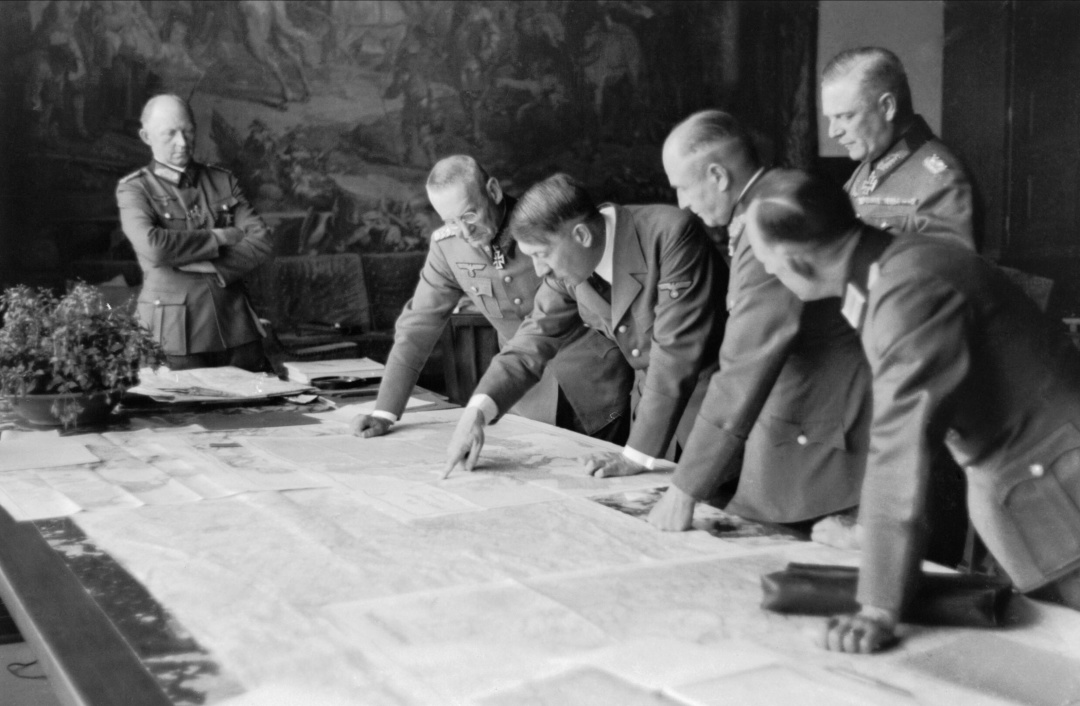
Moscow had for decades been denying the fact that the protocol was ever signed, dismissing it as "fake news." That’s because any agreements on the division of Eastern Europe between sealed between the two dictators would completely overturn the official Soviet version of Stalin, the "peace seeker", who tried to delay the start of war.
Only in December 1989 did a special commission, followed by the Congress of People's Deputies of the USSR, recognize the very existence of this secret protocol and formally condemn it.
In 2009, not only did Vladimir Putin, Prime Minister at that time, reaffirm at the official level his condemnation of the pact, he also branded it "immoral."
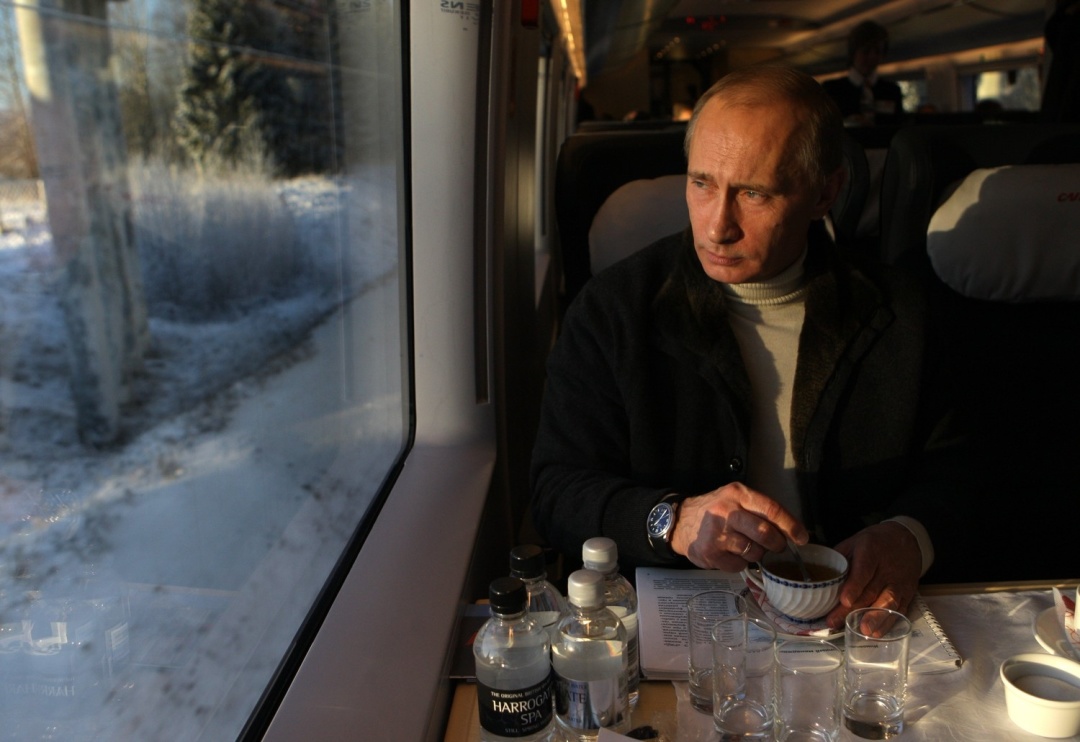
However, everything changed dramatically after Russia occupied Ukraine’s Crimea. In November 2014, Putin switched to claiming there was nothing wrong with the pact, and that it was Poland that was to blame. In 2019, the then culture minister Vladimir Medinsky referred to the pact as a "triumph of Soviet diplomacy."
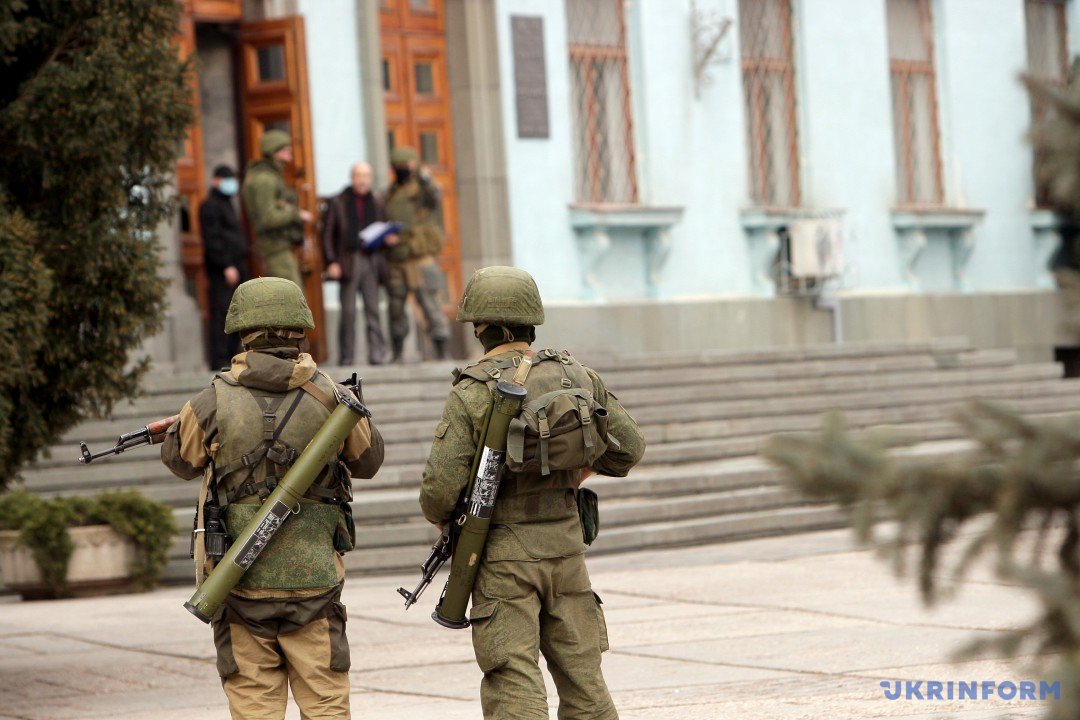
And then, in May 2020, Russia’s State Duma tabled a bill to repeal legislation condemning the Molotov-Ribbentrop Pact in the USSR. Thus the Kremlin is going for yet another cycle…
Center for Strategic Communications and Information Security
im

